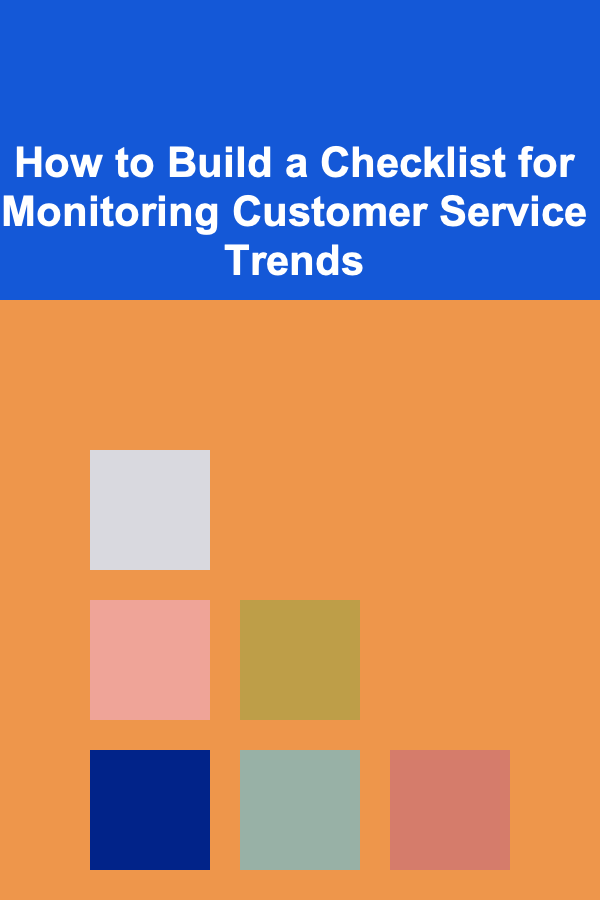
Living a Life of Reason and Logic
ebook include PDF & Audio bundle (Micro Guide)
$12.99$8.99
Limited Time Offer! Order within the next:

In an era dominated by information overload, emotional appeals, and fleeting trends, the ability to navigate the world with reason and logic is more crucial than ever. Living a life guided by these principles doesn't imply suppressing emotions or becoming a cold, calculating machine. Instead, it signifies cultivating a mindset that values evidence, seeks truth, and makes decisions based on sound judgment, fostering a more fulfilling and impactful existence.
What Does It Mean to Live a Life of Reason and Logic?
At its core, a life of reason and logic entails consistently applying critical thinking to various aspects of your life, from everyday decisions to profound philosophical questions. It involves:
- Embracing Evidence-Based Thinking: Prioritizing information supported by verifiable facts and empirical data over opinions, anecdotes, or unsubstantiated claims.
- Seeking Objectivity: Striving to minimize personal biases and emotional influences when evaluating information and making judgments.
- Applying Critical Analysis: Examining assumptions, identifying logical fallacies, and evaluating the validity of arguments.
- Considering Alternative Perspectives: Recognizing the limitations of one's own viewpoint and actively seeking diverse perspectives to gain a more comprehensive understanding.
- Accepting Uncertainty: Acknowledging that absolute certainty is often unattainable and embracing a probabilistic worldview that accepts the possibility of being wrong.
- Adapting to New Information: Being willing to revise beliefs and conclusions in light of new evidence or compelling arguments.
Living logically is not about abandoning intuition or creativity. Instead, it provides a framework for evaluating these impulses and grounding them in reality. Intuition can serve as a starting point for exploration, but it should ultimately be subjected to rigorous scrutiny before being accepted as truth.
The Benefits of a Logical Approach
Adopting a rational and logical approach to life yields numerous benefits, impacting personal well-being, professional success, and societal contributions:
- Improved Decision-Making: By carefully weighing evidence and considering consequences, individuals can make more informed and effective decisions, leading to better outcomes in various areas of life.
- Enhanced Problem-Solving Skills: Logic provides a structured framework for analyzing problems, identifying root causes, and developing effective solutions.
- Reduced Susceptibility to Manipulation: A critical mindset makes individuals less vulnerable to persuasive tactics, misinformation, and propaganda.
- Increased Emotional Intelligence: While often perceived as opposing forces, reason and emotion are interconnected. Understanding cognitive biases and logical fallacies can improve self-awareness and empathy, leading to better emotional regulation.
- Greater Clarity and Focus: By prioritizing evidence and eliminating distractions, individuals can achieve greater mental clarity and focus, leading to increased productivity and effectiveness.
- Strengthened Relationships: Open-mindedness, empathy, and the ability to engage in constructive dialogue are essential for building and maintaining healthy relationships. Logic can foster these qualities by encouraging active listening and the ability to understand different perspectives.
- Increased Self-Confidence: When decisions are based on reason and evidence, individuals are more likely to feel confident in their choices and less prone to second-guessing themselves.
Challenges to Living Logically
Despite the numerous benefits, living a life of reason and logic is not always easy. Several factors can hinder our ability to think rationally:
- Cognitive Biases: These are systematic patterns of deviation from norm or rationality in judgment. Confirmation bias, for example, leads us to favor information that confirms our existing beliefs, while anchoring bias causes us to rely too heavily on the first piece of information we receive.
- Emotional Influences: Strong emotions can cloud our judgment and lead us to make irrational decisions. Fear, anger, and sadness can impair our ability to think clearly and objectively.
- Social Pressures: The desire to conform to social norms or avoid social disapproval can lead us to accept beliefs or engage in behaviors that we know are illogical.
- Lack of Information: Making informed decisions requires access to accurate and reliable information. In an era of misinformation and information overload, it can be challenging to discern fact from fiction.
- Time Constraints: Critical thinking takes time and effort. In today's fast-paced world, we often feel pressured to make quick decisions without thoroughly evaluating the available evidence.
- Habitual Thinking Patterns: We often rely on ingrained habits and assumptions without consciously questioning them. Breaking free from these patterns requires conscious effort and self-reflection.
Strategies for Cultivating a Logical Mindset
Fortunately, there are several strategies we can employ to cultivate a more rational and logical mindset:
1. Educate Yourself About Logic and Critical Thinking
The first step is to familiarize yourself with the basic principles of logic and critical thinking. This includes learning about common logical fallacies, cognitive biases, and methods for evaluating evidence. There are numerous resources available online and in libraries, including books, articles, and courses.
2. Question Your Assumptions
Challenge your own beliefs and assumptions. Ask yourself why you believe what you believe, and whether there is sufficient evidence to support your beliefs. Be willing to revise your beliefs in light of new evidence or compelling arguments.
3. Practice Active Listening
When engaging in conversations or debates, focus on understanding the other person's perspective rather than simply formulating your own response. Ask clarifying questions, summarize their arguments, and try to identify any underlying assumptions or biases.
4. Seek Diverse Perspectives
Actively seek out information and viewpoints that challenge your own. Read books and articles from different sources, engage in conversations with people who hold different opinions, and be open to considering alternative perspectives.
5. Identify and Challenge Cognitive Biases
Become aware of your own cognitive biases and actively work to mitigate their influence. Use checklists or mental prompts to remind yourself to consider alternative explanations, seek out disconfirming evidence, and avoid relying on heuristics.
6. Practice Mindfulness and Emotional Regulation
Mindfulness practices can help you become more aware of your thoughts and emotions, allowing you to better regulate your emotional responses and make more rational decisions. Techniques such as meditation and deep breathing can help you to calm your mind and focus on the present moment.
7. Use a Structured Decision-Making Process
When making important decisions, use a structured decision-making process to ensure that you consider all relevant factors and weigh the evidence carefully. This might involve defining the problem, identifying potential solutions, gathering information, evaluating the pros and cons of each solution, and making a decision based on the available evidence.
8. Embrace Intellectual Humility
Recognize that you don't know everything and that you are always capable of learning more. Be willing to admit when you are wrong and to revise your beliefs in light of new information. Cultivating intellectual humility will make you more open to new ideas and less resistant to changing your mind.
9. Engage in Constructive Dialogue
Practice engaging in respectful and productive conversations with people who hold different opinions. Focus on finding common ground, understanding each other's perspectives, and identifying areas of agreement and disagreement. Avoid personal attacks, name-calling, and other forms of unproductive communication.
10. Learn from Your Mistakes
Everyone makes mistakes, but it is important to learn from them. When you make a decision that turns out to be wrong, take the time to analyze what went wrong and identify areas where you could have made a better decision. Use your mistakes as opportunities for growth and learning.
Logic in Different Areas of Life
The application of reason and logic extends to various aspects of life:
In Personal Relationships
Applying logic in personal relationships involves communicating clearly, actively listening, and understanding the other person's perspective. Instead of reacting impulsively to emotions, a logical approach can help resolve conflicts constructively and build stronger bonds based on trust and mutual respect. For example, instead of assuming a friend is angry at you, consider alternative explanations for their behavior and ask them directly about it in a calm and open manner.
In Career and Work
Logic is crucial for problem-solving, decision-making, and effective communication in the workplace. Analyzing data, identifying trends, and developing strategies require a logical mindset. Furthermore, the ability to present arguments persuasively and back them up with evidence is essential for career advancement.
In Finance
Financial decisions, such as investing, budgeting, and saving, should be based on careful analysis and logical reasoning. Avoid impulsive spending habits driven by emotions and instead, base financial choices on researched information and a well-defined financial plan.
In Health
Making informed decisions about health requires evaluating scientific evidence and considering the potential risks and benefits of different treatments. Logic can help filter through misinformation and make choices that align with personal health goals.
Common Pitfalls to Avoid
Even with conscious effort, it's easy to fall into traps that hinder logical thinking:
- Argument from Authority: Accepting a claim solely because an authority figure asserts it, without independent verification. Remember that even experts can be wrong.
- Ad Hominem Attacks: Attacking the person making the argument rather than the argument itself. Focus on the merits of the argument, not the character of the arguer.
- Straw Man Fallacy: Misrepresenting an opponent's argument to make it easier to attack. Accurately represent the opposing viewpoint before refuting it.
- False Dichotomy: Presenting only two options when more exist. Recognize that most issues have multiple perspectives and solutions.
- Appeal to Emotion: Using emotional appeals to persuade rather than logical arguments. While emotions are important, they should not be used to manipulate or distort the truth.
- Bandwagon Effect: Accepting a claim simply because it is popular. Popularity does not equate to truth.
- Correlation vs. Causation: Assuming that because two things are correlated, one causes the other. Correlation does not imply causation. Further investigation is needed to establish a causal relationship.
The Importance of Context
While logic is crucial, it's important to recognize the role of context. Logic should be applied with sensitivity and an awareness of the nuances of the situation. Rigidly applying logical rules without considering the human element can sometimes lead to unintended consequences. Emotional intelligence, empathy, and cultural sensitivity are vital components of well-rounded reasoning.
Conclusion
Living a life of reason and logic is a continuous journey of learning, self-reflection, and critical thinking. It involves cultivating a mindset that values evidence, seeks truth, and makes decisions based on sound judgment. While it may not always be easy, the benefits of a logical approach are undeniable. By embracing reason and logic, we can navigate the complexities of the world with greater clarity, make better decisions, and ultimately live more fulfilling and impactful lives.

How to Build a Checklist for Monitoring Customer Service Trends
Read More
How to Keep Your Closet Organized with Simple Hacks
Read More
How to Manage Leftovers Effectively in Your Kitchen
Read More
How to Start a Part-Time Editing Business from Home: Tips for Beginners
Read More
How to Store Seasonal Pet Supplies Effectively
Read More
10 Must-Have Tech Items Checklist for Your Cruise
Read MoreOther Products

How to Build a Checklist for Monitoring Customer Service Trends
Read More
How to Keep Your Closet Organized with Simple Hacks
Read More
How to Manage Leftovers Effectively in Your Kitchen
Read More
How to Start a Part-Time Editing Business from Home: Tips for Beginners
Read More
How to Store Seasonal Pet Supplies Effectively
Read More